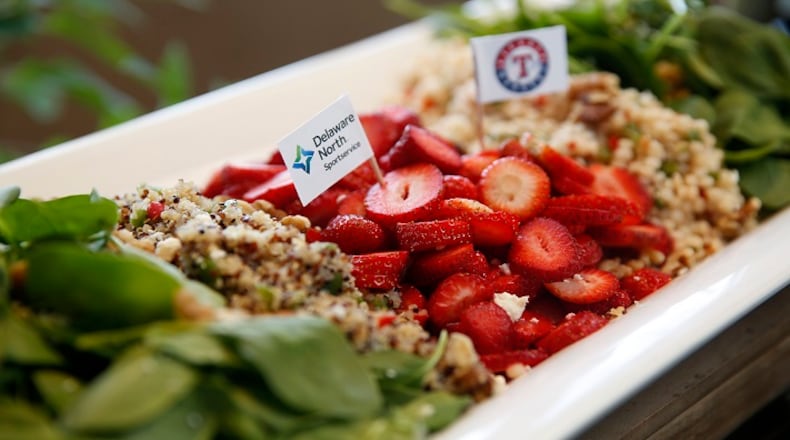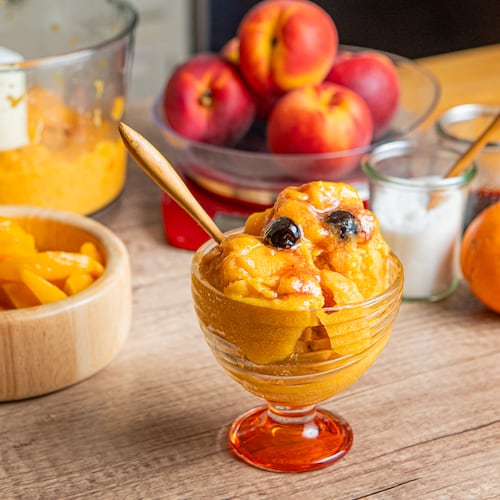In our ever-earnest quest for health (and perhaps to be part of the hip diet-following crowd), certain phrases make their way into our gastronomic vernacular. At times, admittedly, they stick in our craw:
Paleo. Whole 30. Cleanse.
Then there’s this one, alluring in its innocence, tantalizing in its seeming simplicity: clean eating.
It sounds, on the surface at least, to be a breath of fresh air — inhaled and exhaled, slowly and yoga-esque, through the nose. What, after all, what could be more basic than clean eating?
Lots, apparently. The headline on a Good Housekeeping column called it “Total BS.” Huffington Post UK wrote about “How Clean Eating Became a Dirty Word.” For every website or trainer or dietitian touting it, there’s another rolling their eyes or giving it a thumbs down.
It’s confusing, they say. It implies if you’re not eating clean, you’re an overweight sloth whose food is unclean. It can cause anxiety in a world that already has plenty enough worries — particularly of the dietary variety.
“I tend not to use the phrase often,” says Sara Asberry, registered dietitian at the University of Texas at Dallas, “because I feel it has a lot of mixed messages. It inadvertently is implying that all other foods are dirty.”
Julie Kuehn, registered dietitian and personal trainer at Life Time in Allen, Texas, loves it.
“When I hear ‘clean eating,’ I think, “Oh, yeah!’” says Kuehn. “I feel like, honestly, as a dietitian practicing for 23 years, I think we’ve finally stumbled upon the catchphrase that gets it.”
One problem, though, seems to be coming up with a mutually agreed-upon understanding of the two words. What exactly does it mean?
“There are a lot of definitions, and that’s part of why it can be so confusing,” Asberry says.
Kuehn defines the concept basically as “minimally processed foods. If it came from the ground,” she says, “it looks pretty much like it did when it was growing. A potato chip looks nothing like a potato.”
But, she acknowledges, people do get a little carried away: “Should we get all organic? All local meats? There’s not a clean-eating council to define it.”
In the past, Kuehn says, so-called “diets” revolved around eliminating something — for instance, carbohydrates or fat. “Everybody’s always trying to eliminate a food group, then another group of scientists comes out and says ‘No, eat this.’ It’s leaving consumers confused and baffled.”
But, says Asberry, many people are just as baffled with clean eating.
“If they come to me wanting to eat more fruits and vegetables and whole grains and lean protein, I can support them,” she says. “But if they come to me wanting to eat all organic and omit foods from their diet — ‘I hear dairy is bad for me’ or ‘I hear grains are processed foods so I don’t want to consume them’ — they’re eliminating really nutritious foods. A lot of times, if you’re eating too much of one thing, you’re not eating enough of another.”
As a dietitian on a college campus, working with clients who have eating disorders, she’s especially sensitive to how people view what they put into their mouths.
“We find the term ‘clean eating’ can be very triggering for people who already obsess about food,” she says. “I tend not to use the phrase because I feel it has a lot of mixed messages. It’s definitely pretty weak, and inadvertently is implying that all other foods are dirty.”
What if, for instance, you decide to celebrate a friend’s birthday with a slice of — heaven forbid — cake?
“What does that mean about you?” says Asberry, who has had clients suffer panic attacks because they ate a bagel. “Intentions aren’t meant to be ugly or judge-y, but inadvertently, that’s what happens.”
Allison Cleary, a registered dietitian at Baylor Scott & White Medical Center at White Rock, also cautions against taking clean eating too far. Say, for instance, you eliminate fast food. OK; they’re not exactly known as bastions of health. Then you move on to all deli meats. Again understandable, because some processed meats have been shown to increase cancer risk. Then you read online that you should be grinding your own meat.
Then you hear that steaming broccoli will change the nutritional content and rethink this important vegetable. Then you start turning down dinner invitations for fear you won’t find anything on the menu that falls into what you consider “clean eating.” Then you begin looking askance at other people who eat a chocolate-chip cookie or meat that isn’t grain-fed.
“It’s not mentally healthy, mainly because it causes a lot of anxiety, a lot of worry,” says Cleary. Plus, “clean eating, in its most extreme form, is pretty time-consuming.”
When people find out she’s a dietitian, she says, they often brag about eating clean. “They’re almost looking for praise and recognition, like ‘You’re doing something good!’ If it’s just a quick thing, I say, ‘Yeah, eat your fruits and vegetables,’ and I leave the conversation. People get defensive if I say it’s not all it’s cracked up to be.”
When Kuehn meets with clients, she stresses the importance of making small and slow changes that will become part of a permanent way of eating. She tells them to forgive themselves for past dietary transgressions, and to look at food as fuel.
“Clean eating is a way of eating,” she says, “a new lifestyle. There are no foods they’re not allowed to have. We move toward a healthy balance and do it as a way of life.”
Credit: Nathan Hunsinger
Credit: Nathan Hunsinger
Here are some tips to eating — call it what you will — clean, healthy, sensibly.
LOOK FOR CLEAN LABELS
If you’re having oatmeal, Asberry says, the label should say “100 percent rolled oats.”
“If we’re looking at yogurt, I want to see milk and active cultures. Past that, we should be more cautious. Milk, I want it to say ‘milk.’ Unsweetened almond milk wouldn’t fit in as clean. It’s a paragraph of ingredients.” It’s not a “bad food,” she says, but “they’re trying so hard to make it a substitute for milk that it has to be heavily fortified to compare.”
SEEK OUT FOODS WITH NO LABELS
Shop grocery store perimeters: “Fresh fruits and vegetables, fresh lean protein, dairy products, really nice whole grains,” Asberry says.
EAT MINDFULLY
This is the concept of “just listening to your body and really trying to nourish your body,” Cleary says, “of trying to recognize your hunger cues, eating when you’re hungry and stopping when you’re full.”
Craving a cheeseburger? Ask yourself if it’s something you really and truly want. “If it is, allow yourself to have it, guilt-free, without beating yourself up, and without overeating,” she says.
Asberry suggests creating routines: Eat at the table. Instead of walking around the house mindlessly munching on a bag of chips, make nutritionally dense trail mix with nuts, unsweetened dried fruit, whole-grain pretzels and dark chocolate chips. Put a portion on a plate or napkin, eat that and put the rest away.
MAKE SMALL BEHAVIORAL CHANGES
“There’s no magic cure for a healthy diet, no one thing you have to eliminate or one super food you want to add and you’ll automatically be super-healthy,” Cleary says. “A lot of people want that.”
If you tend to pick up most meals from a drive-through window, decide to make lunch or dinner one day a week. “When you feel comfortable with that, work on two days or three,” Cleary says. “Over a period of time — we’re talking months and years — you’ll look back and say, ‘I made a big lifestyle change.’”
NIX THE WORD ‘CHEATING’
“Most people have a hard time with this, but I say, ‘You’re in it for the marathon, not the sprint,’” Kuehn says. “The goal is 80 percent of the time to be spot-on. Don’t consider it messing up; consider it training yourself.”
PLAN AHEAD WHEN EATING OUT
Just about every restaurant posts its menu online. “A safe thing is usually grilled salmon or other fish,” Kuehn says. “I tell them instead of couscous or white rice, do extra vegetables. Or a salad, but check what they put in it. Are there candied pecans in there?” If so, pick another kind.
STILL CONFUSED? SEEK HELP
“If you have any question about bloating or feeling gross or you feel like you’re in a brain fog, lab testing is very helpful,” Kuehn says.
Adds Cleary: “People generally know what their weaknesses are and what they need to work on. But if you’re having difficulties, see a dietitian. We’re able to work with you and help you with your problem areas. You’re supposed to enjoy your food.”
About the Author
The Latest
Featured



